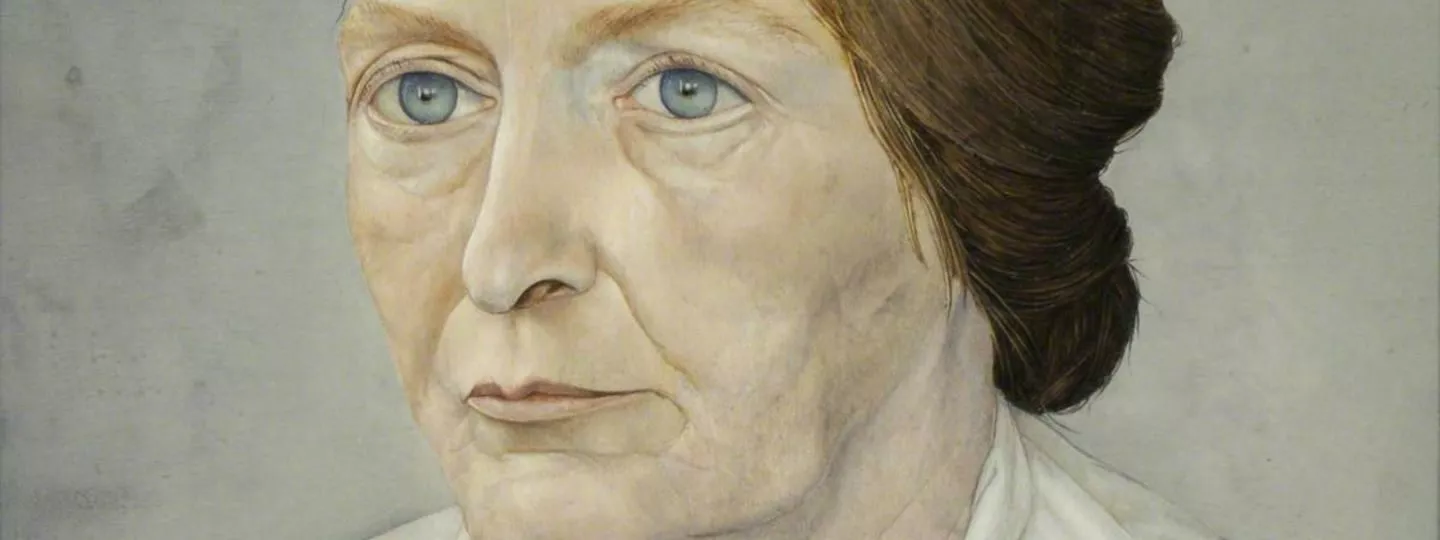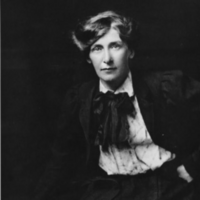
Cicely Hamilton
Cicely Mary Hamilton (née Hammill, 15 June 1872– 6 December 1952), was an English actress, writer, journalist, suffragist and feminist, part of the struggle for women’s suffrage in the United Kingdom. She is now best known for the play How the Vote was Won, which sees all of England’s female workers returning to their nearest male relative for financial support.. She is also credited as author of one of the most frequently performed suffrage plays, A Pageant of Great Women (1909), which first put Jane Austen on the stage as one of its “Learned Women.”
Cicely Mary Hamilton (née Hammill, 15 June 1872– 6 December 1952), was an English actress, writer, journalist, suffragist and feminist, part of the struggle for women’s suffrage in the United Kingdom. She is now best known for the play How the Vote was Won, which sees all of England’s female workers returning to their nearest male relative for financial support.. She is also credited as author of one of the most frequently performed suffrage plays, A Pageant of Great Women (1909), which first put Jane Austen on the stage as one of its “Learned Women.”
Biography
Cicely Mary Hammill was born in Paddington, London and educated in Malvern, Worcestershire. After a short spell in teaching she acted in a touring company. Then she wrote drama, including feminist themes, and enjoyed a period of success in the commercial theatre.
In 1908 she and Bessie Hatton founded the Women Writers’ Suffrage League. This grew to around 400 members, including Ivy Compton-Burnett, Sarah Grand, Violet Hunt, Marie Belloc Lowndes, Alice Meynell, Olive Schreiner, Evelyn Sharp, May Sinclair and Margaret L. Woods. It produced campaigning literature, written by Sinclair amongst others, and recruited many prominent male supporters.
Hamilton supplied the lyrics of “The March of the Women”, the song which Ethel Smyth composed in 1910 for the Women’s Social and Political Union.
In the days before radio, one effective way to get a message out into society and to have it discussed was to produce short plays that could be performed around the country, and so suffrage drama was born. Elizabeth Robins’s Votes for Women and Cicely Hamilton and Christopher St. John’s How the Vote Was Won are two predominant examples of the genre. Hamilton also wrote A Pageant of Great Women, a highly successful women’s suffrage play based on the ideas of her friend, the theatre director Edith Craig. Hamilton played Woman while Craig played the painter Rosa Bonheur, one of the 50 or so great women in the play. It was produced all over the UK from 1909 until the First World War. Hamilton was a member of Craig’s theatre society, the Pioneer Players. Her play Jack and Jill and a Friend was one of the three plays in the Pioneer Players’ first production in May 1911.
During World War I Hamilton initially worked in the organisation of nursing care, and then joined the army as an auxiliary. Later she formed a repertory company to entertain the troops. After the war, she wrote as a freelance journalist, particularly on birth control, and as a playwright for the Birmingham Repertory Company. In 1938 she was given a Civil List pension.
Hamilton’s Theodore Savage (1922, vt. Lest Ye Die 1928) is a science-fiction novel about a Britain devastated by a war.
In July 2017, the Finborough Theatre staged the first London production of Hamilton’s play 'Just to Get Married’ in over 100 years. It received positive reviews (4 stars) from The Times The Observer The Evening Standard and The New York Times The production was directed by Melissa Dunne and the cast included Tania Amsel, Nicola Blackman, Joanne Ferguson, Lauren Fitzpatrick, Jonny McPherson, Stuart Nunn, Philippa Quinn, Simon Rhodes and Joshua Riley.


